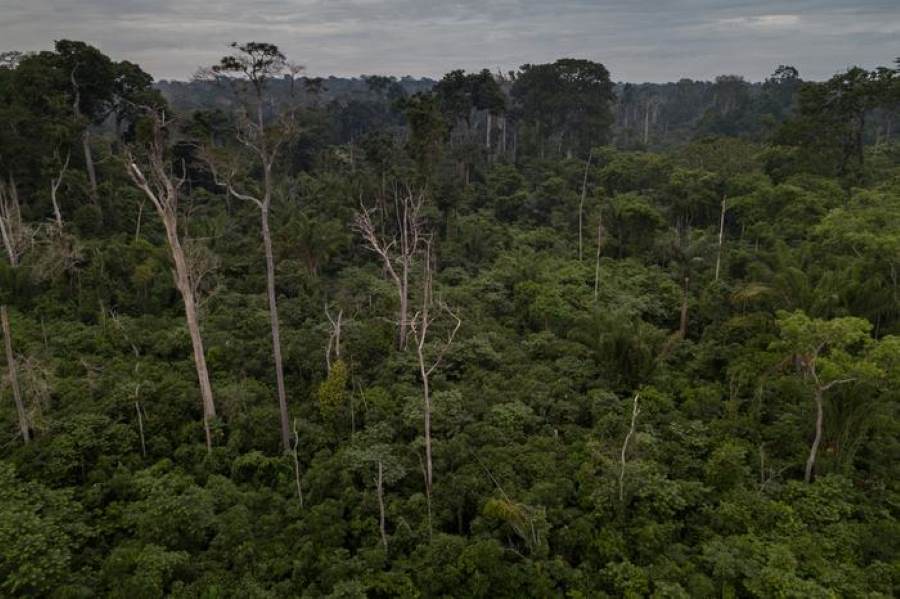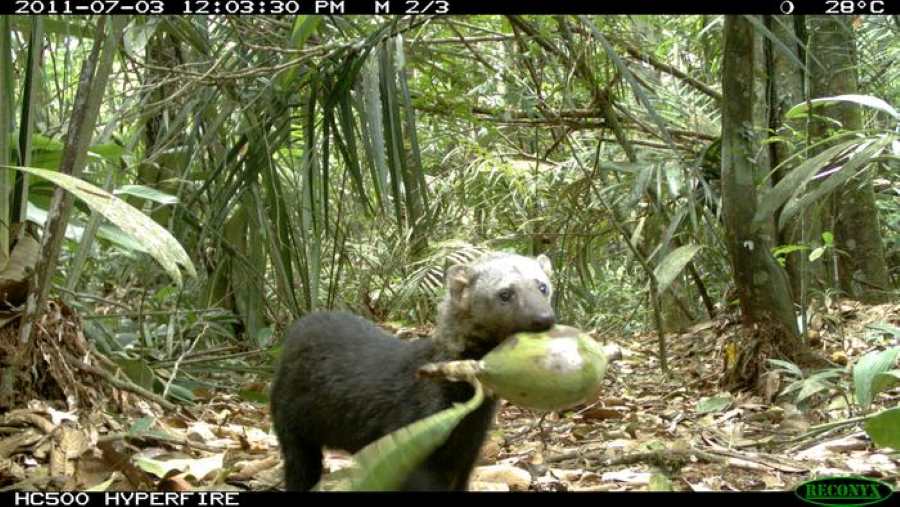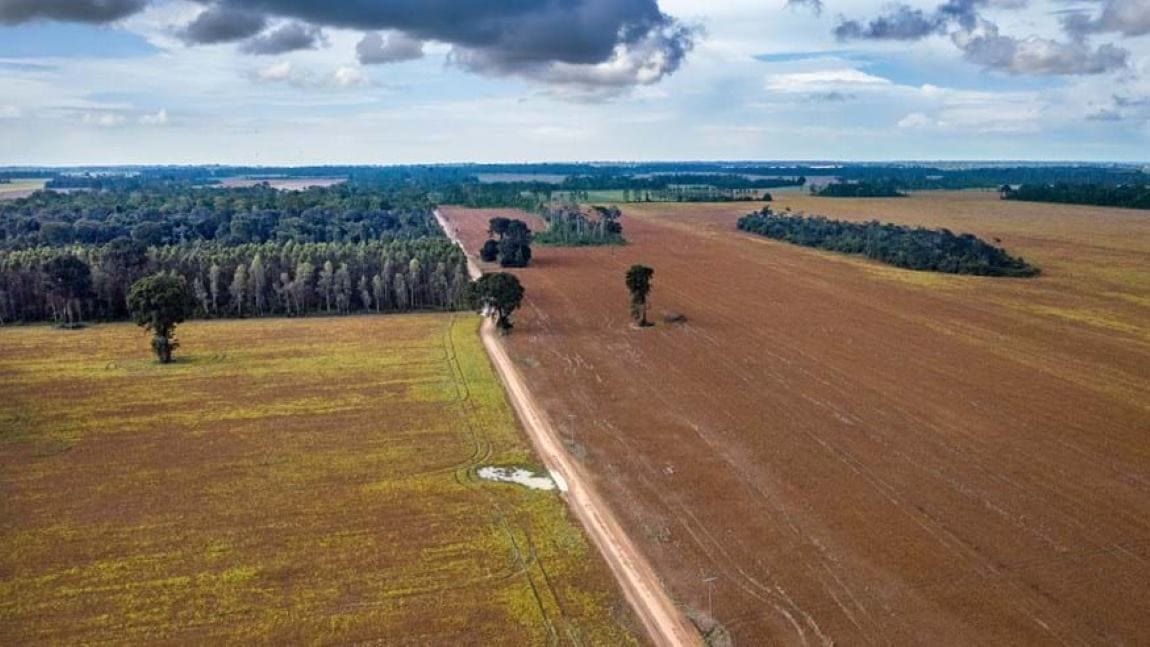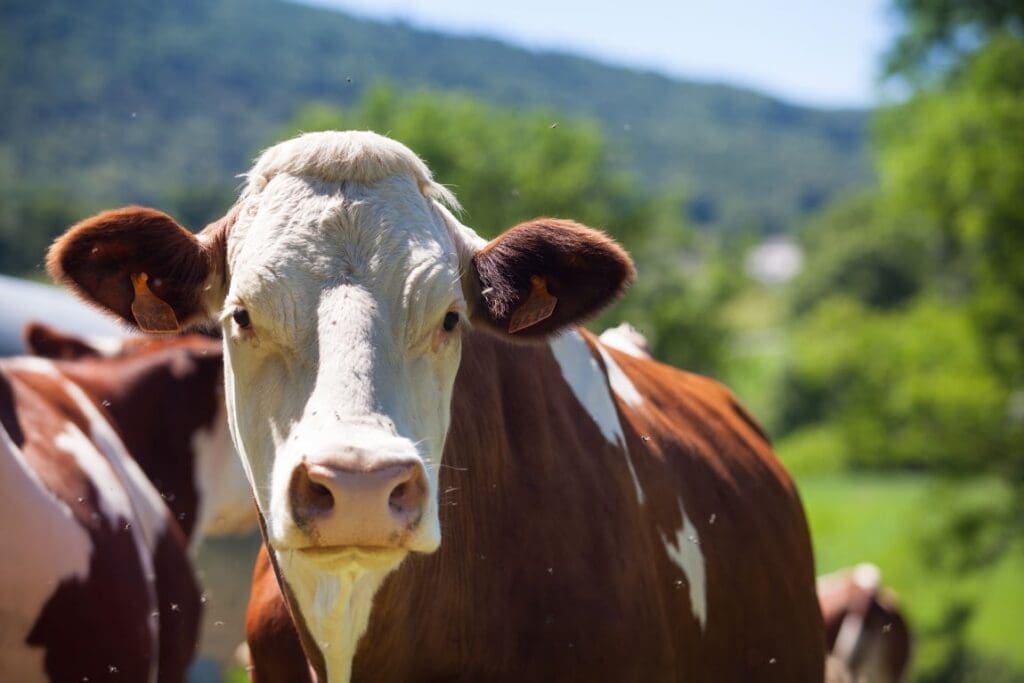In Brazilian forests shaped by human activity, a shift in tree species dominance is underway.
Fast-growing, small-seeded species are flourishing in areas with significant deforestation and degradation, according to new research published in Nature Ecology & Evolution.
This shift has profound implications for carbon storage and wildlife, as these “winner” species, while quick to grow, have shorter lifespans and less dense wood compared to the slow-growing, large-seeded species they replace.
The study, conducted by an international team of researchers, analyzed over 1,200 tropical tree species across more than 270 forest plots in the Amazon and Atlantic forests of Brazil. Using statistical models, the researchers examined the impact of habitat loss, fragmentation, and local disturbances such as logging and burning on tree species composition.

“We found that the tree species dominating landscapes with high forest cover tend to have dense wood and large seeds, which are primarily dispersed by medium to large-bodied animals typical of Brazil’s rainforests,” explained Bruno X. Pinho, the study’s first author who conducted most of the research while at the University of Montpellier, now at the University of Bern. “In contrast, in highly deforested landscapes, where remaining forests face additional human disturbances, these tree species are losing out to so-called ‘opportunistic’ species, which have softer wood and smaller seeds consumed by small, mobile, disturbance-adapted birds and bats. These species typically grow faster and have greater dispersal capacity”
The findings show the vulnerability of Brazil’s forests to human interference, which alters not only biodiversity but also critical ecosystem processes. Wildlife species that depend on large-seeded trees may struggle to adapt to these changing dynamics, potentially threatening forest regeneration.
Despite varying geography, climate, and land-use patterns, the shift from dense-wooded species to fast-growing, disturbance-tolerant species was consistent. The researchers emphasize the need to combat forest degradation alongside deforestation to preserve these vital ecosystems.
“The strong influence of forest degradation in some Amazonian regions demonstrates the importance of going beyond tacking deforestation and also combating forest disturbances, such as selective logging and fires,” noted Senior Investigator Professor Jos Barlow of Lancaster University.

Tropical forests, which house the majority of terrestrial biodiversity and act as critical carbon sinks, have experienced substantial losses, with up to six million hectares disappearing annually over the last two decades. A significant portion of these forests is now in human-modified landscapes, further exposing them to degradation.
“These functional replacements have serious implications that urgently need to be quantified. They suggest possible deteriorations of essential processes of these ecosystems and their contributions to human populations, in particular through changes in carbon stocks – but also in fauna-flora interactions and forest regeneration,” explained Felipe Melo, co-author and researcher at the Federal University of Pernambucoin in Brazil (now at Nottingham Trent University).
The study provides crucial insights into the independent effects of habitat fragmentation and local disturbances, which are often less understood due to the difficulty of disentangling cause-and-effect relationships.
“There is broad consensus on the negative impact of habitat loss on biodiversity, but the independent effects of landscape fragmentation and local disturbance remain less well understood, in part because of the difficulty in disentangling cause-and-effect relationships on the one hand and non-causal associations on the other,” said David Bauman, a co-author from the French National Research Institute for Sustainable Development (IRD).
The research, supported by the UKRI National Environment Research Council, offers a clearer understanding of how human activity reshapes forest ecosystems and provides actionable steps to mitigate its impacts.
Journal Reference:
Pinho, B.X., Melo, F.P.L., ter Braak, C.J.F. et al. ‘Winner–loser plant trait replacements in human-modified tropical forests’, Nature Ecology & Evolution (2024). DOI: 10.1038/s41559-024-02592-5
Article Source:
Press Release/Material by Lancaster University
Featured image: Fragmented and degraded forests in the Santarem region. Credit: Marizilda Cruppe | Rede Amazônia Sustentável




